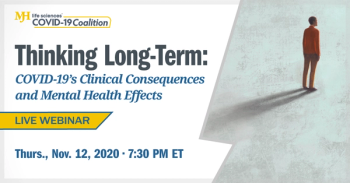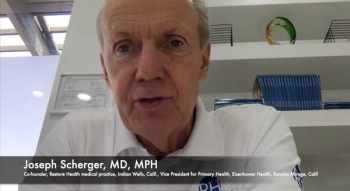
The pandemic has disrupted access to behavioral health for some, but boosted it for others.

The pandemic has disrupted access to behavioral health for some, but boosted it for others.

More people are suffering and seeking treatment than before the pandemic.

The opioid problem may have fallen out of the headlines, but the data shows a lot of bad news.

A perceived lack of support from family and friends can affect a patient’s ability to manage type 2 diabetes.

For people addressing prediabetes, a move to virtual coaching hasn’t eclipsed the powerful pull of community-based programs.

The latest on managing diabetes with Marie E. McDonnell, MD

With forethought and the right technology on board, remote patient monitoring can be a good complement to telehealth, allowing physicians to receive data about their patients’ in real time.

This scenario involves a patient presenting with symptoms of chronic obstructive pulmonary disease (COPD); see if you can choose the correct codes.

The MJH Life Sciences COVID-19 Coalition will discuss the pandemic’s clinical impact and mental health effects.

The best practices for treating COPD, particularly in light of the changing restrictions imposed by COVID-19

The opioid epidemic may have disappeared from the headlines, but the problem is still here.

See if you can choose the correct codes.

Joseph Scherger, MD, explains why

Body fat in the gut is a driver of numerous chronic diseases

Joseph Scherger, M.D., is fighting back against the unhealthy Western diet and lifestyle

Diet changes could improve chronic disease

The role of grain in chronic disease

The COVID-19 pandemic has put obesity in the spotlight, illustrating the need to focus on screening and treating it more aggressively than before

Researchers at Mount Sinai have found a connection between where a person lives and their likelihood of developing chronic conditions.

What are the implications for primary care?

Are you missing out on revenue because of improper coding?

A study found insulin costs in the U.S. are higher than in 32 comparison countries.

OMA’s fall virtual conference begins Oct. 7 and ends Oct. 11

Now, more than ever, health care organizations need to develop sustainable partnerships within their communities

The week is an opportunity for physicians to empower themselves to meet the challenges of treating obesity